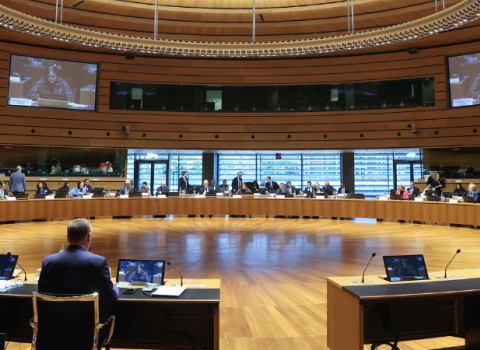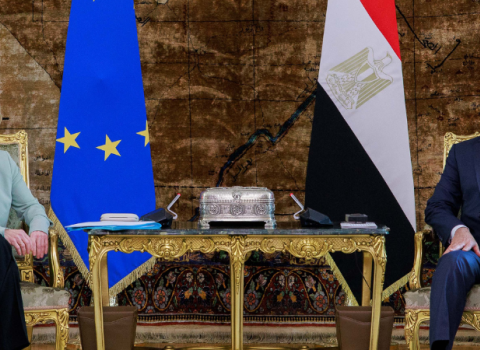Christian Ehler says road maps for industry-led projects in Horizon Europe need to be decided years in advance. To join in, the UK needs a swift deal on associate status
Christian Ehler. Photo: European Parliament
Time is running out for the UK to secure its place in the EU’s 2021-2027 research programme, a leading member of the European Parliament has warned.
Germany’s Christian Ehler says he can’t detect any strategy, or urgency, from the UK government to gain associate membership for its researchers in the EU’s Horizon Europe programme.
“I don’t see a practical strategy,” Ehler said. “There’s no substantive proposal on the table from the government and they appear relatively ignorant about this.”
Ehler’s warnings follow an analysis earlier this week, which said that the likelihood of agreeing the UK’s place in Horizon Europe before the end of the year appears remote.
Without a deal, UK companies like the engine manufacturer Rolls-Royce can’t be included alongside some of the biggest names in European industry in the next iteration of the EU’s Clean Sky research project, starting in January 2021.
This public-private partnership, which includes Airbus, Thales and Saab, aims to build lighter, more environmentally friendly planes.
“This is industry so we’re talking about practical road maps for research and innovation that need to be decided years in advance. The consortia are not going to wait for the UK,” he said.
The manufacturing expertise Rolls-Royce contributes to the project is “a core UK interest”, Ehler argues. “Their absence in the project would raise concerns for Airbus too.”
The loss of EU funding would inevitably hit the aero-engine group, which has just opened a £25 million facility near Bristol where robots are making engine fan blades from carbon fibre. Using this material should result in a 20 per cent weight saving compared to previous materials.
The company has reportedly already spent £100 million preparing for a no-deal Brexit, an outcome that still could happen if there is no Brexit deal or extension by the end of the year.
Cut the bluster
Ehler says arguments on both sides of the Brexit divide need to turn pragmatic. “We’re running out of time and we don’t still have a focus on what’s important,” he said.
UK prime minister Boris Johnson is expected to give a speech next week spelling out the British negotiating position.
Most aspects of the future UK-EU relationship remain up in the air. Beyond research, the UK will be going into talks – pencilled to start on March 3 – looking to nail down arrangements for a whole host of areas, including law enforcement, data sharing and security, aviation standards and safety and licensing and regulation of medicines. Until the end of 2020, the UK will continue to follow all of the EU's rules and the trading relationship will remain the same.
Ehler says it’s time to cut the bluster. “Staying in a state of populistic back and forth will cost us a lot. I say ‘us’, because it’s a problem for the EU too. Without any kind of strategy on the UK side to give any ease to academia and industry, we’re running into trouble,” he said.
A Horizon Europe programme without UK participation is, “not in the interest of the R&D community in Europe,” Ehler said. “And I say this because we still care.”





 A unique international forum for public research organisations and companies to connect their external engagement with strategic interests around their R&D system.
A unique international forum for public research organisations and companies to connect their external engagement with strategic interests around their R&D system.